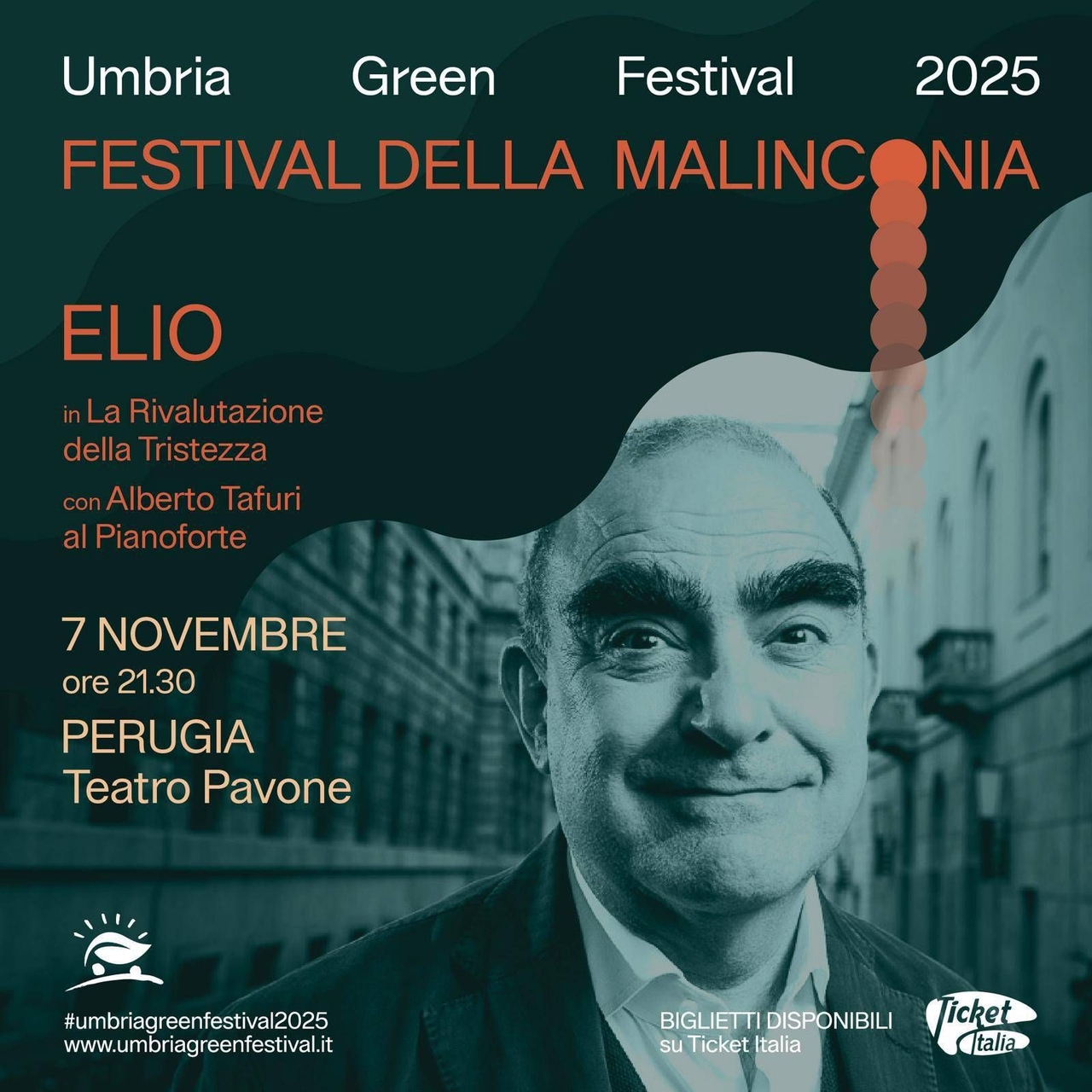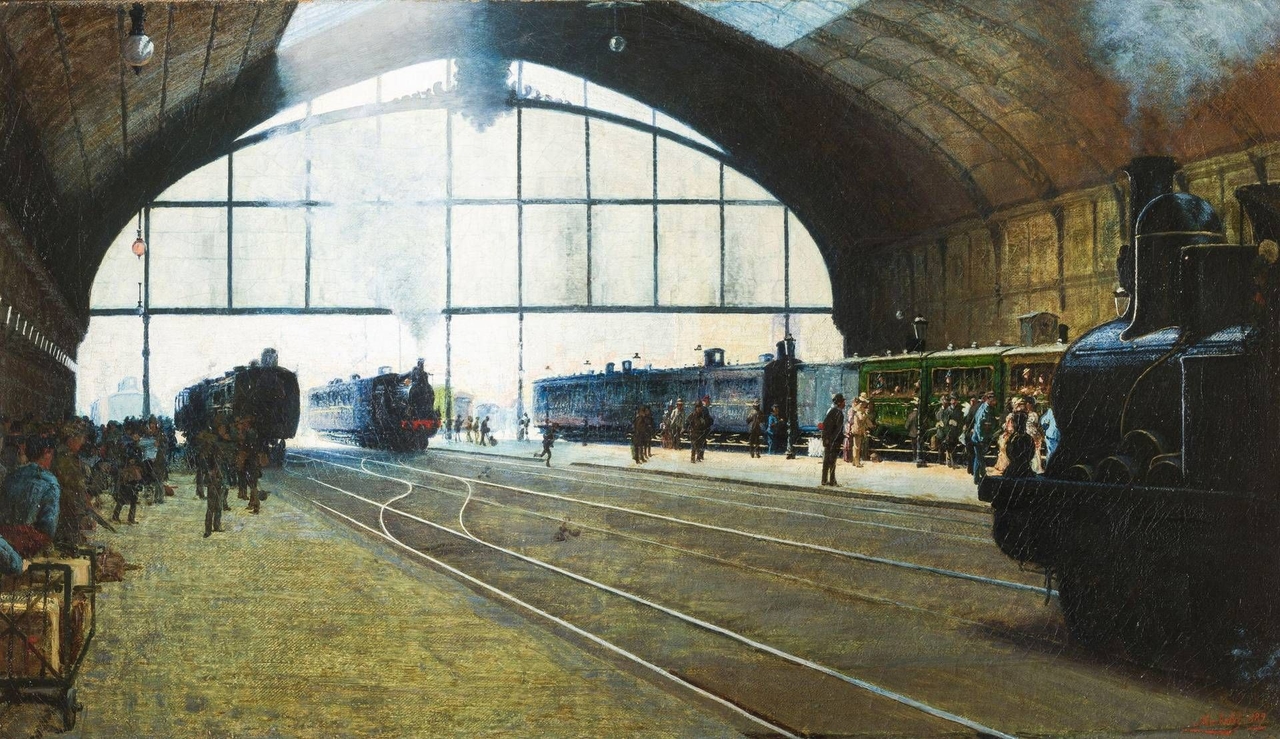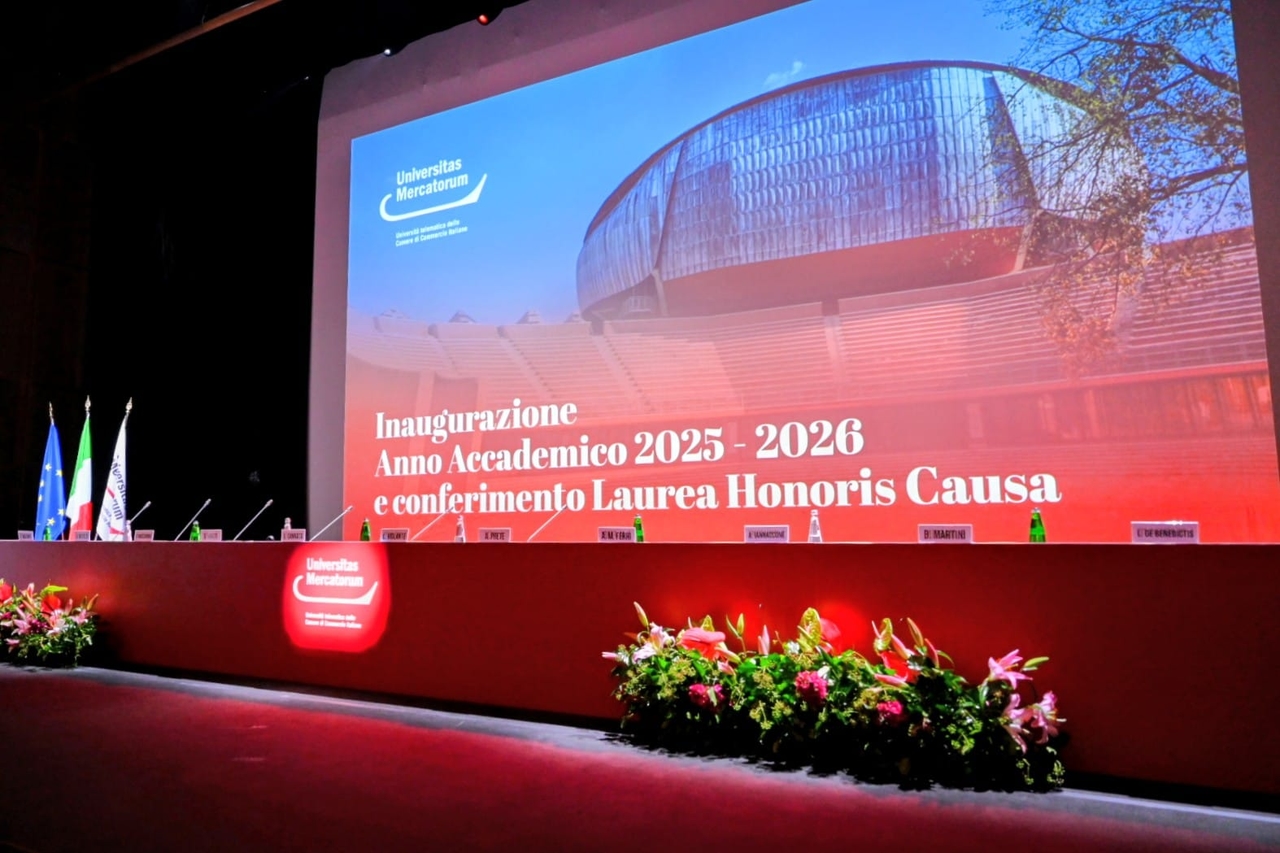The Festival of Melancholy is born in Perugia

In a world that seems to always want us to be cheerful, fast, and efficient, there are those who have the courage to pause, to look within themselves and into the depths of mundane things, giving space and voice to an often unheard and curbed feeling: melancholy. Thus was born the Festival della Melanconia , an intimate and daring project within the Umbria Green Festival, scheduled for November 7 and 8, 2025, in Perugia . A sort of "festival within the festival," conceived by Daniele Zepparelli, artistic director of UGF, and curated by Valeria Cecilia, journalist, editor, and independent curator . The Festival aims to be a personal and symbolic space, both physical and imaginary, where memories, life experiences, readings, and sounds can be recalled, in a suspended time that welcomes melancholy not as an anomaly of the system, but as a possibility to be listened to.
"Van Gogh wrote that there exists a silent melancholy, which allows us to see things with a more sacred eye," says Daniele Zepparelli, artistic director of the Umbria Green Festival and creator of the Festival della Melancholia. "In a decidedly dark context like the one we live in today, with this new project we would like to offer an inner experience that helps us connect with that feeling that is both dark and luminous, to explore and touch what can stir souls and help us rebuild, with a conscious and fresh perspective, not denying but embracing nostalgia for lost time. Because, as Thomas Bernhard said, the world should be disturbed at times, not just entertained. I believe the hope for change also begins from this."
Perugia, therefore, becomes—exceptionally on this occasion—an open house of melancholy, a sentiment that has spanned centuries of art, philosophy, music, and literature. A special energy that does not divide, but connects, connects, and unites. The Festival of Melancholy was born within the Umbria Green Festival, a project that since 2016 has brought together culture, science, and nature within a single framework, generating a vibrant and multidisciplinary dialogue. Through performances, lectures, concerts, books, and theater, UGF addresses the major issues of our time—sustainability, emotions, and environmental crises—creating a collaborative and informed narrative of contemporary life. Past guests include Roberto Vecchioni, Umberto Galimberti, Isabella Rossellini, Piergiorgio Odifreddi, Sonia Bergamasco, Antonio Pascale, Alice, Telmo Pievani, Massimo Recalcati, Corrado Augias, Fabrizio Gifuni, Marlene Kuntz, and many others.
Here's the program. 'The Revaluation of Sadness', Elio with Alberto Tafuri on piano, November 7th at 9:30 pm – Perugia, Teatro del Pavone. "Don't make the mistake of denigrating sadness!", say Elio e le Storie Tese. And here Elio, accompanied by maestro Alberto Tafuri on piano, embarks on a musical journey to rediscover sadness, a feeling that has permeated the history of art and every form of human expression—from Catullus to Virginia Woolf, from Munch to Donald Duck—yet which today is often feared and repressed. The aim is to restore sadness's nobility and necessity through the words and music of some of the great artists of the Italian and international musical tradition. Sadness isn't ultimately bad, but like grass peas and saffron, it should be taken in small doses, and if you overdo it, you need an antidote. For this reason, the show also features appropriately interspersed with cheerful songs.
Melancholy and the End of the World. Lecture by philosopher Paolo Godani, November 8 - 11:00 AM - Perugia, Central State Archives. What is this melancholy that grips us? Over the last half century, melancholic experiences have become so widespread that they've reached a stage some call "epidemic." But what can we do, in these dark times, other than be melancholic? Melancholy has cultural, philosophical, and even political foundations. According to Paolo Godani, we have moved from melancholy, a romantic feeling, to melancholy, characterized by profound sadness. Melancholy is not an individual problem, but is also a collective, social, and atmospheric phenomenon that has to do with how we perceive things in the world and, within it, our own lives. So, can we try to change our perception, that is, our perspective? And how?
Paolo Godani, philosopher, teaches Aesthetics at the University of Macerata. His works include: Common Life, DeriveApprodi 2016; On Missing Pleasure, DeriveApprodi 2019; Traits. A Metaphysical Mind of the Individual, Presses Universitaires de France 2020; The Body and the Cosmos, Neri Pozza 2021; Melancholy and the End of the World, Gramma Feltrinelli 2025. Proust's Melancholy. Lecture, including tea and madeleine tasting, by Anna Isabella Squarzina, linguist, translator, and Proust scholar. November 8th - 5:00 PM, Perugia, The Tea Plant. What significance does melancholy have for Marcel Proust, in his life and in his works? If À la recherche du temps perdu offers a clear answer to the question from its title, it is true that today we can get to know a newer but also older Proust, the one revealed by The Seventy-Five Sheets, a fundamental unpublished work discovered in 2018 and translated in Italy by Anna Isabella Squarzina.
Starting from here, over tea and a madeleine, we'll take a tour of Proust's entire oeuvre. A fun fact: Italian has three different terms for this feeling, or rather, three different linguistic states coexist: melancolia, melanconia, and melancholia. It's a bit as if, following Proust's theory of the self, three different versions of each of us walked the streets: our childhood, adult, and elderly selves. In French, a less traditionalist language, however, the word is just one: mélancolie.
Anna Isabella Squarzina teaches linguistics, translation, and French literature at Lumsa University in Rome. She is a specialist in Proust, to whom she has dedicated two volumes (Anatomy of Pain, Turin, Aragno 2005; Proust au présent, Paris, Classiques Garnier, 2023) and a series of articles in international journals. She is the author of the world's first translation of Proust's unpublished work, The Seventy-Five Sheets (Milan, La Nave di Teseo, 2022), for which she received the National Translation Prize. She also works in contemporary literature, and for an educational project on microfiction, she won the 2018 European Language Label, while for the conference "Interior Word and Spirituality," she received the 2018 Scientific Label of the Italo-French University and the Medal of the President of the Republic. Tove Jansson's Autumn. Laura Pezzino, journalist and writer, takes us on a fascinating journey into the poetry of Finland's most famous writer. November 8th, 6:00 PM, Perugia, Feltrinelli Bookstore
Tove Jansson, Finland's most beloved and widely read writer, has confined the feelings that most frightened her to her art—illustrations and comics, but also novels and short stories—the feelings that most frightened her: melancholy, loss, change, and loneliness. She has constructed new physical and imaginary worlds, like the Mimums, the atypical family of fluffy white trolls whose magical, whimsical, and slightly bittersweet adventures have accompanied the growth of thousands of children around the world. Together with Laura Pezzino, author of the biography Working and Loving. Loving and Working (Electa), we will also explore the more nostalgic and autumnal sides of what was, for many, a summer creature, sunny and full of grace. Laura Pezzino is a journalist and writer. After years on the editorial staff of Vanity Fair as head of the culture pages, she now writes for various publications, collaborates with publishing houses and film companies, writes and hosts podcasts, and teaches courses on journalism and literature. She has published the geo-biography A New York with Patti Smith (Giulio Perrone), the novel for young adults The Day Everything Changed (Il Battello a Vapore), and Working and Loving. Loving and Working. Tove Jansson (Electa, 2025). Since 2022, she has been the editorial curator of Book Pride, the Italian independent publishing fair.
Trio Malinconico. Performance with Diego De Silva (narrator), Aldo Vigorito (double bass), and Stefano Giuliano (saxophone). November 8th, 9:30 PM – Perugia, Teatro della Sapienza. The works of Diego de Silva, featuring his character, the lawyer Vincenzo Malinconico, have always spoken to us of melancholy, separation, and disappointment, employing a brilliant dose of irony. And the Trio Malinconico, composed of Diego De Silva (narrator), Aldo Vigorito (double bass), and Stefano Giuliano (saxophone), alternating readings and performances, presents an unplugged performance, featuring only double bass and saxophone, where melancholy and beauty, sound and words, become one. The Trio Malinconico, active for several years and with numerous performances throughout Italy at theaters, festivals, and literary and music clubs, presents a unique and unplugged performance, featuring only double bass and saxophone.
Diego De Silva, narrator. All of Diego De Silva's books (Naples, 1964) are published by Einaudi and translated into many languages. Among these are Certain Children and Couple Therapy for Lovers, which were adapted into two films of the same name, as well as the saga of unsuccessful lawyer Vincenzo Malinconico, whose novels inspired the eponymous Rai Uno TV series. Stefano Giuliano, saxophone. Born in Buenos Aires in 1958, he graduated from the Conservatory of Salerno and in jazz music from the Conservatory of Cosenza. Since 1987, he has conducted the Jazz Orchestra of the University of Salerno and, since 2007, the Salerno Jazz Orchestra. He has performed with, among others, Tom Harrell, Peter Erskine, Randy Brecker, New York Voices, Diane Schuur, Roberta Gambarini, Bob Mintzer, and Dee Dee Bridgewater.
Aldo Vigorito, double bass. Born in Salerno in 1958, he studied at the Santa Cecilia Conservatory in Rome with Franco Petracchi and Federico Rossi. He has performed with, among others, Eivind Aarset, Gary Bartz, George Benson, Flavio Boltro, Stefano Bollani, Lester Bowie, Irio De Paula, Peter Erskine, Bruce Forman, Paolo Fresu, Richard Galliano, Tom Harrell, Michele Hendricks, Pat La Barbera, Arto Lindsay, Joe Lovano, David Sanborn, Enrico Rava, Tony Scott, Archie Shepp, and the Solis String Quartet. In 2010 and 2011, he was named one of the best Italian double bass players by Musica Jazz magazine. He teaches Ensemble Music at the Martucci Conservatory in Salerno.
Adnkronos International (AKI)





